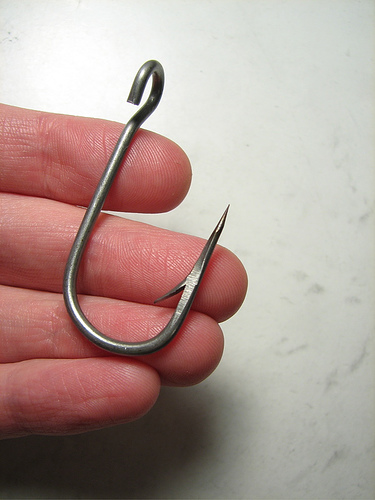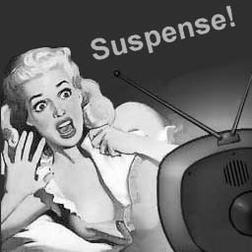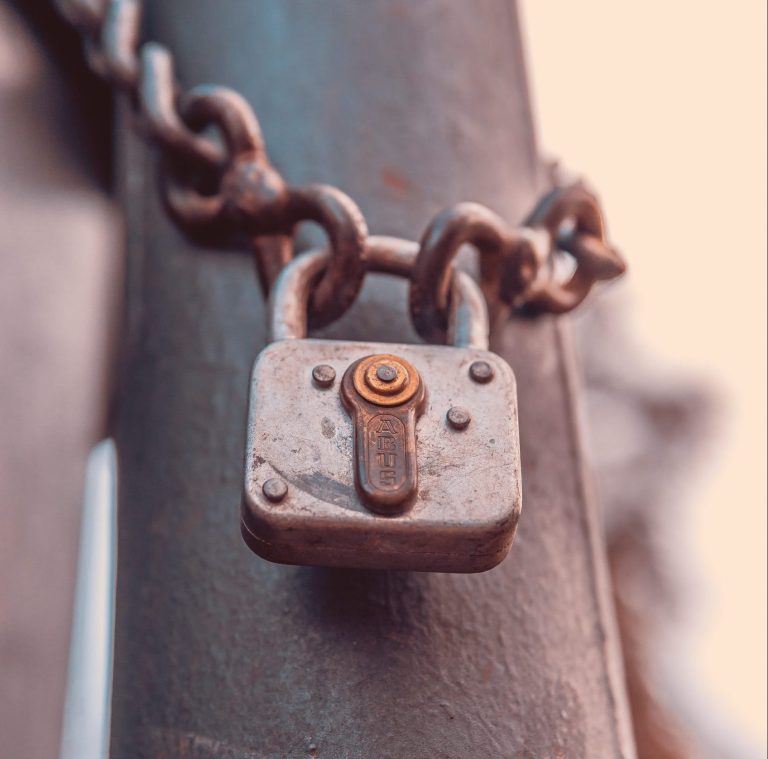How to Hook Readers and Reel Them into Your Scenes
We toss around the word hook when we talk about stories. What’s the hook? we ask. Sometimes we’re talking about the overall premise: what component to the story idea is unique, compelling, intriguing. Othertimes we’re talking about the first few lines of a novel (or first line) that is to be crafted in a way to grab readers and make them want to read more.
But that’s not all the hooks we need. We’re on the hook for coming up with great openings for every scene we write. Sure, novels don’t have a killer first-line hook for every scene, but we certainly want to open each scene strong.
That usually means ditching explanation and backstory and dull description of place and weather. Instead, a more effective way to hook readers into a scene is to consider these things:
- The tone or mood you need to set that implies the POV character’s state of mind and emotion.
- The situation you can insert your character into that is already underway in an interesting manner (in other words, don’t start scenes with your character waking up, then brushing his teeth, then getting dressed, for example).
- Some element of mystery or microtension that creates curiosity.
Sure, a catchy first line or paragraph is helpful to hook readers, but you can’t always be that snappy with every scene opening, nor would it be a good idea.
Let’s face it: too many scene openings are boring. They may be functional, moving the plot along, but do they really interest readers, get them turning pages?
It behooves us as writers to do our best to make our scenes as engaging as possible. I’m going to share some tips from a post I wrote a few years back, because the information is so pertinent:
It may seem simplistic to say that scenes are basically mini novels, with a beginning, middle, and end. But this is a simple and helpful way to look at scenes. The main difference is that your scene endings aren’t the end of your story but a specific way to hook the reader into reading further.
That word hook should tell you something. Yes, your scene ending needs just as strong a hook as the beginning. What you want more than anything is for a reader who is thinking of taking a break from your book (“I’ll just read to the end of the chapter and then stop”) to be unable to put your book down upon finishing a scene. The last lines of the scene hook her, then as she begins the next scene, she’s hooked again. Pulled further into your story, like a fish on a line.
What’s the bait on the hook? Your promise to deliver.
Promises, Promises
Think of each scene opening as a promise. Or many promises. Overall, you’re promising your reader you’re going to give her a ride. Entertain her. Engage her emotions. After reading the description or back-cover copy of your book, she’s anticipating a particular kind of story. That description is the promise you make to readers of the story you will tell them.
Despite even the most fascinating description, for the most part, readers are dubious. They aren’t opening your book with heightened excitement. They are usually wary and ready to make a quick negative judgment about the merit of your book. Ready to quit. Why? Because 1) reading a novel is a huge investment of time. A novel needs to feel worthwhile to commit such time to it, and 2) readers have been repeatedly disappointed by books promising them a terrific story but failing to deliver.
Maybe if a reader is a super fan of your novels, he’ll start in with that kind of excitement and expectation. I always feel that when I hold a new Elizabeth George mystery or Patricia McKillip fantasy in my hands. I have high expectations. Why? Because I’ve been promised exciting stories and these authors have consistently delivered.
You may not have thousands of super fans yet. And frankly, even if you do, they are still going to expect you to deliver. Maybe even more than someone who has never read any of your books.
So let’s start at the beginning. At the hook.
Overall, your novel needs a hook. That’s the killer concept with a kicker that I cover in greater depth in The 12 Key Pillars of Novel Construction. When you tell someone a brief summary of your novel’s premise, and they say to you, “That sounds okay, but what’s your hook?” they’re talking about that unique story concept that adds the twist and interest to an ordinary plot.
Let’s take this down a notch to the scene level. One of the items on the scene checklist is the hook. The first item on that list is “My scene has a strong opening line (hook) that grabs the reader.” And the second-to-last item is “My scene ends with a bang—with either some insight for the POV character, something important happening, or some surprise that leaves the reader satisfied.” Thinking in terms of two hooks—placed at the start and end of each scene—helps you envision how all your scenes are linked (or hooked) together.
What you want to keep in mind here is not so much the mechanics as the effect. You’re going for brain engagement, and what researchers have found is what grabs our attention is the unusual, a sniff of danger or trouble, something that seems wrong or out of place, and showing a character that evokes empathy.
Hooks are more than just a promise of a good scene ahead. They can accomplish things like establish a character’s mind-set, paint a picture of the setting, or convey a surprising piece of information. This applies to both the opening hook and the ending hook. Many authors spend a lot of time honing those hooks to make them memorable, and some of the great novels in history have their first lines often quoted.
A hook that’s created just to grab attention and that doesn’t actually set the right tone or smoothly connect to the purpose of the scene can be seen as a gimmick and can create confusion. Don’t succumb to gimmicky first lines just because they sound clever. They’re going to fall flat and feel cheap. This applies to catchy last lines of scenes.
Whether a few first great lines can carry enough weight to make any novel memorable and acclaimed is debatable. But there’s a lot to say for a novel that has strong hooks. The more scenes in your novel that have those strong hooks, the better chance it will have to stand out above the masses of published novels.
You Need More Than a Hook
Of course not every scene is going to provide a great opportunity for a dynamic hook. But it can’t hurt to work on them. Going back through your scenes after you’ve written, rewritten, and polished them is a great time to ponder your hooks. If you can tie in your opening hook with your closing hook at the end of the scene (conceptually or by repeating a line or word or phrase), you can pack a powerful punch.
Once you’ve created that great opening scene hook, are you off the hook? No, because now that you’ve made your promise to deliver a great, intriguing scene, you have to, well, deliver. If you make it your aim to craft every subsequent line with the creativity and punch you did with your hook, you can take your scene to the heights of magnificence. Is that too much to expect? It may be difficult, but it’s a worthy goal to strive for.
So don’t blow out a breath of relief once you’ve created that great first line. Yes, that’s a terrific accomplishment. But you’re not off the hook, and you don’t want your readers to slide off either. Way too many scenes I’ve critique open well, with a strong hook, but quickly lose my interest because that same level of attention was clearly not given to the rest of the scene.
Master Scene Structure!
Needless to say, there is so much to scene structure. It takes serious effort to study and master writing scenes. And that’s why I’m introducing a new boot camp this year: The Scene Structure Boot Camp. It’s three intensive days looking at every aspect of scene structure.
 At the boot camp, you’ll not only learn all about scenes, you’ll be writing and sharing your scenes, as well as giving feedback to other writers on their scenes. The best way to master a technique is to put everything you learn into practice, then run it by other writers to see if you succeeded in evoking the emotion you intended and kept their interest.
At the boot camp, you’ll not only learn all about scenes, you’ll be writing and sharing your scenes, as well as giving feedback to other writers on their scenes. The best way to master a technique is to put everything you learn into practice, then run it by other writers to see if you succeeded in evoking the emotion you intended and kept their interest.
In the boot camp, we work together in a small group, an intimate setting, that allows for creativity to flow. Seven hours a day, for three days, we’ll be tearing apart scenes, looking at examples of terrific scenes, and challenging ourselves to write the best scenes ever!
If you want to be a scene master, come to the boot camp! There is still one room left at the house, if you want to stay with the core group  and enjoy all the perks afforded there. But we also have ten spaces for day attendees (you arrange your own lodging in the area and just come from 9-4 each day, lunch included!).
and enjoy all the perks afforded there. But we also have ten spaces for day attendees (you arrange your own lodging in the area and just come from 9-4 each day, lunch included!).
Scene Structure Boot Camp. (Boot Camp is Sept. 30- Oct 2, Mon-Wed, 9 a.m. – 4 p.m., check-in Sunday afternoon, check-out Thursday morning if you’re staying in the house, unless you want to stay one additional night to decompress!) Cost of boot camp: $300.
Stay at the house and get gourmet breakfast, hot tub, and a private room with bathroom en suite ($250/night).
South Lake Tahoe is a gorgeous travel destination, and that’s why we hold the boot camps there each year. Sign up soon, as spots will fill up! Learn more HERE.












Currently reading your 12 Key Pillars book and finding it helpful – especially the chapters about scene structure.
Some really great ideas here. Would love to take in your boot camp someday!
Everyday scenes can work well if writers avoid restating in every scene the character’s feelings or worries for or about someone.
I’ve just finished reading P G Wodehouse’s JILL THE RECKLESS. This man was a master at his craft! His story wasn’t completely focused on a two-person relationship or conflict. He wove in enough other personalities and issues to keep the reader’s interest up.
He also used humor as a hook, as did Agatha Christie and others of their day. Their skillfully worded wry comments about human nature in general and each character’s quirks in particular hold a reader’s interest. Jane Austen’s opening line of PRIDE AND PREJUDICE is a great example of this, revealing in one sentence Mrs Bennet’s plans for Charles Binkley. Oh, to have such a way with words!
I’ve seen writers start a novel with “today” and then flash back. Is this wise? I started a book where the opening scene showed an old, lonely man thinking back, recalling his life and what happened that got him to this place. I didn’t read any farther. I already knew he’s made bad decisions so his life turned out rotten. Why read more? Do other readers feel this way?